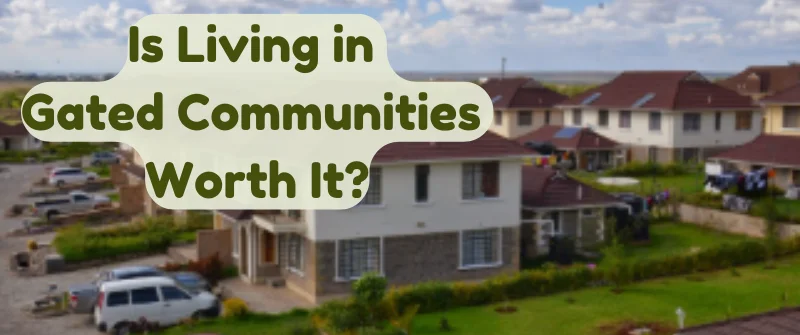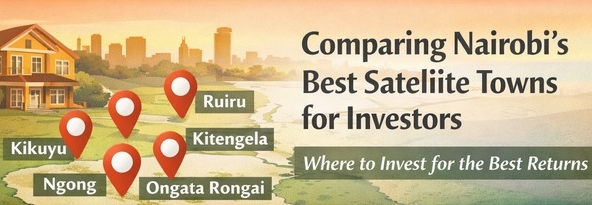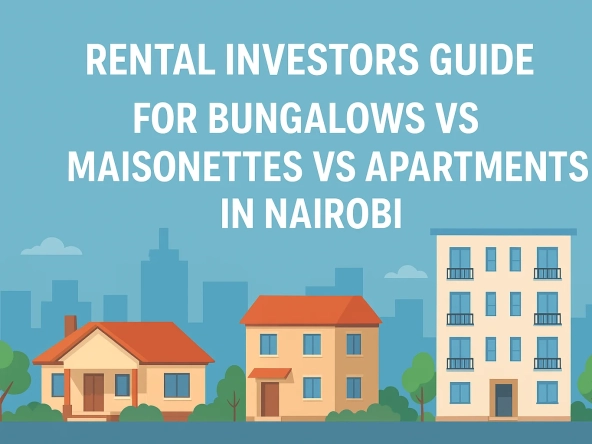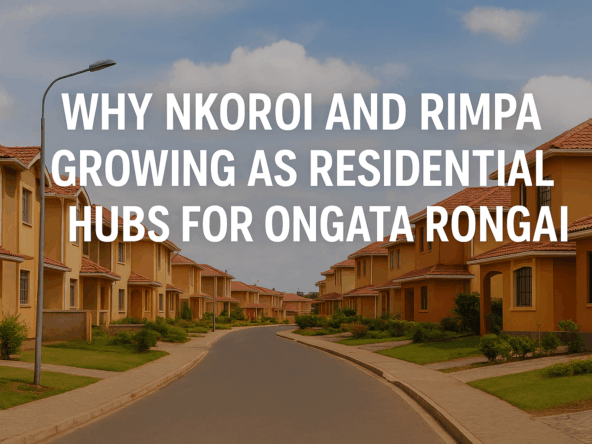Many Kenyans are choosing to live in a gated community. These residential areas, often enclosed with fences or walls, promise safety, privacy, and exclusivity.
But is living in a gated community the right decision for you? Let’s explore the benefits and downsides to help you decide.
What Are Gated Communities?
Gated communities are residential neighborhoods with controlled access. They often feature security gates, guards, and shared amenities like parks, gyms, or swimming pools.
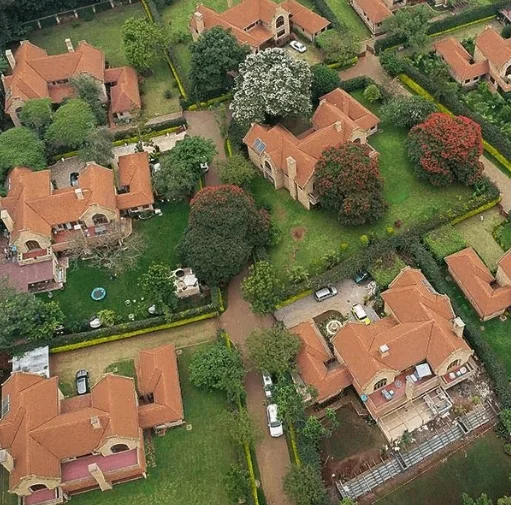
The idea of gated communities in Kenya started in the 1980s and began in Nairobi. Wealthy families wanted secure homes with privacy. The first big projects were in areas like Karen and Runda.
Why? Safety was a big reason. People also wanted peace. Over time, developers saw this trend and built more gated estates.
Today, they’re common in cities like Nairobi, Mombasa, and Kisumu. These communities keep growing as more people prefer them.
Advantages of Living in Gated Communities
1. Enhanced Security
Living in a gated community means more safety. These neighborhoods often have perimeter walls, CCTV cameras, and trained security guards.
The crime risk is much lower with controlled access points than in open neighborhoods or standalone homes.
2. Sense of Community
In gated communities, neighbors connect easily. Shared spaces like parks and clubhouses bring people together, fostering a friendly and cohesive culture and making living in a gated community feel like part of a big family.
3. Access to Amenities
Why leave home when everything is nearby? Gated communities often have gyms, swimming pools, and playgrounds.
These facilities make living in a gated community convenient and fun, especially for families with kids.
4. Well-Maintained Environment
Say goodbye to unkempt streets. Gated communities are known for their clean, green surroundings. Homeowners’ associations manage landscaping, waste disposal, and general upkeep, creating a beautiful and pleasant place to live.
5. Increased Property Value
Gated communities often attract high-end buyers or tenants. Their security and amenities boost property value. This makes living in a gated community a lifestyle choice and a wise investment.
Disadvantages of Living in Gated Communities
1. High Costs

Living in a gated community isn’t cheap. Buying a home here costs more than in regular neighborhoods. On top of that, you’ll pay monthly maintenance fees for shared services.
These additional expenses can strain your budget, especially if unexpected fees arise.
2. Limited Privacy
Close living quarters mean your neighbors are always nearby. While some love this social vibe, others might find it intrusive.
Homeowners’ association rules can also feel like they’re invading your space. Over time, constant social interactions can become overwhelming for more private individuals.
3. Restricted Freedom
Gated communities come with rules. You may face limits on home renovations, keeping pets, or even running a business from home. If you love flexibility, this could be frustrating. These restrictions can make you feel you have less control over your house.
4. Overcrowding Risks
As these communities grow in demand, shared spaces can become crowded. This could mean long waits for the gym or a noisy pool area, reducing the quality of life. Overcrowding might also lead to increased wear and tear on shared facilities.
5. Potential for Community Conflicts
Disputes happen, even in gated communities. Neighbors might clash, or you could face issues with the homeowners’ association. Resolving these conflicts can be challenging. Mismanagement or biased decisions can escalate these issues further.
Types of Gated Communities in Kenya
1. Affordable Gated Communities
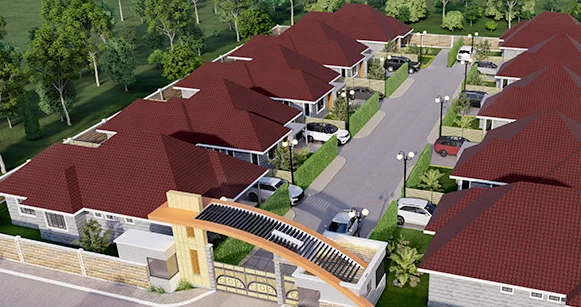
Affordable gated communities cater to middle-income earners. They offer basic security features, such as perimeter fences, gated entry, and a guard at the entrance.
However, amenities are often minimal—expect a shared playground or small park rather than luxurious extras.
These communities are popular in areas like Athi River and Kitengela, providing a safer environment at a reasonable cost.
2. Luxury Gated Communities
These are at the top of the market. Luxury gated communities boast premium features like private gardens, spacious homes, and state-of-the-art amenities like gyms, swimming pools, and golf courses.
They are designed for high-income earners who value exclusivity, comfort, and prestige. Examples include Runda and Karen in Nairobi. They offer not just homes but an elevated lifestyle.
3. Mixed-Use Gated Communities
Mixed-use gated communities combine homes, commercial spaces, and recreational facilities in one location. Shops, offices, and even schools are within the same development. This setup eliminates the need for long commutes, offering unmatched convenience.
Notable examples in Kenya include Garden City and Two Rivers Mall Residences in Nairobi, ideal for families and professionals.
Factors to Consider Before Moving into a Gated Community
1. Location and Accessibility
Location is key. A gated community far from your workplace, schools, or hospitals can make daily life inconvenient.
Look for areas with good road networks and proximity to essential services. For example, some gated communities in Kiambu Road and Syokimau have easy access to Nairobi’s CBD.
2. Costs
Buying or renting in a gated community is usually more expensive than in open neighborhoods. Beyond the purchase price, consider monthly service charges for amenities, security, and landscaping. These costs can add up, so ensure they fit your budget before committing.
3. Community Culture
Every gated community has its vibe. Some are family-friendly, with playgrounds and community events. Others are quieter, attracting retirees or professionals.
Research and visit potential communities to see if the lifestyle matches your preferences.
4. Rules and Policies
Gated communities often have strict regulations, like limits on home modifications, pet ownership, or parking. Ensure you’re comfortable with these rules before moving in.
For example, some communities may restrict running a business from your home, which could be a deal breaker for entrepreneurs.
Who Benefits the Most from Gated Communities?
1. Families with Children
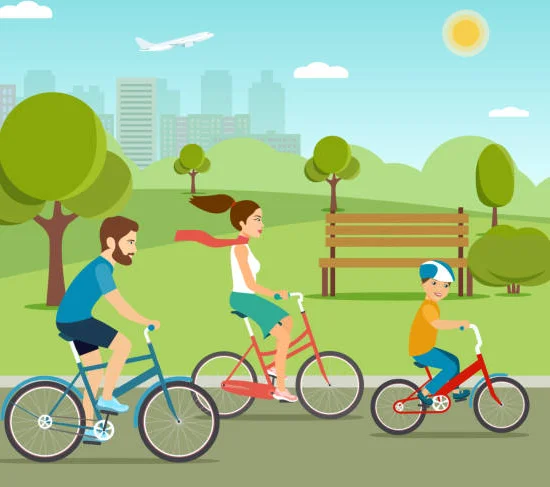
Families love gated communities for their safety and social setup. Kids can play in secure playgrounds, ride bikes on quiet streets, and attend nearby schools.
Parents also appreciate the strong sense of community, which makes raising a family easier.
2. Professionals
Busy professionals benefit from the convenience and tranquillity of gated communities. Proximity to offices, reliable security, and access to recreational facilities like gyms make their lives easier.
Luxury gated communities, in particular, cater to this group by offering modern homes with all the bells and whistles.
3. Investors
For property investors, gated communities are a goldmine. Their homes typically command higher resale and rental values due to features like security, exclusivity, and amenities.
Areas like Kilimani and Westlands are hotspots for such investments, attracting tenants willing to pay a premium for comfort and convenience.
The Rise of Gated Communities in Urban Kenya
Urbanization and rising insecurity have fueled the demand for gated communities in Kenya. With cities becoming crowded, people seek safer and more organized living spaces.
Gated developments like Thika Greens and Green Park Estate in Nairobi offer not just homes but entire neighborhoods built for modern living.
These communities also reflect a shift in preferences. Many urban dwellers now prioritize security, convenience, and quality of life.
As a result, gated communities are thriving in Nairobi, Mombasa, Kisumu, and even emerging towns like Eldoret.
Challenges Facing Gated Communities in Kenya
1. Infrastructure Strain
Rapid growth in gated developments can stretch local infrastructure. Poorly maintained roads, limited water supply, and unreliable electricity often become issues.
Without proper urban planning, even these exclusive communities can face challenges.
2. Exclusivity vs. Inclusivity
Gated communities create a divide between residents and the general public. While they provide a haven for some, they can also fuel perceptions of inequality in urban planning.
Striking a balance between exclusivity and inclusivity is challenging for developers and city planners.
3. Community Management
Conflicts among neighbors or disputes with homeowners’ associations can disrupt harmony. Issues like maintenance delays, disagreements over fees, or rule enforcement often arise. Effective management is essential to ensure smooth living in these communities.
Living in a gated community offers many benefits, but these challenges show it’s not all rosy. Weigh your options carefully to decide if it’s the right move for you.
The Future of Gated Communities in Kenya
1. Eco-Friendly Gated Communities
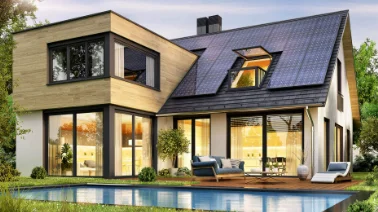
The future is green! Developers are focusing on sustainable living. Eco-friendly gated communities with solar power, water recycling, and green spaces are rising.
These communities aim to reduce environmental impact while offering modern comforts.
2. Technology-Enabled Living
Smart homes are the next big thing. Future gated communities may feature advanced security systems, automated lighting, and app-controlled appliances.
Technology will make living more accessible and more efficient for residents.
3. Mixed-Use Developments
More people want convenience. Mixed-use gated communities that combine homes, offices, and entertainment spaces are gaining traction. Residents can work, shop, and relax—all within walking distance. This trend is set to redefine urban living.
4. What’s Ahead?
In the next decade, gated communities will continue to grow in popularity. Developers will likely focus on innovation, sustainability, and meeting diverse needs.
Expect more options to fit different budgets and lifestyles.
Conclusion
Living in gated communities has clear benefits, such as security, amenities, and a sense of community. However, there are also challenges, such as costs and potential restrictions.
Is living in a gated community worth it? It depends on your needs, budget, and preferences. Consider the pros and cons carefully before making your choice. With the right fit, it could be the perfect place to call home.
